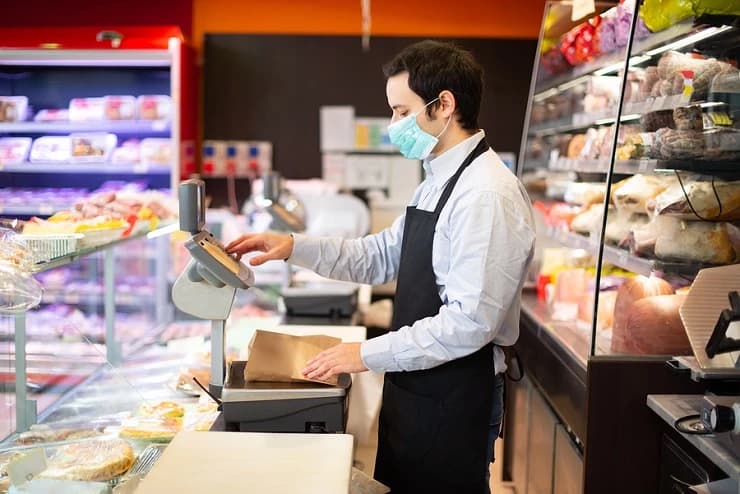We’re living in a world none of us could have imagined just a few short months ago. For your grocery store employees working on the front lines, it’s been especially stressful. They can’t work from home like many others, and their workplace has been chaotic as they juggle product shortages and panicked shoppers. Many have quit out of fear and anxiety. Most soldier on, but in a heightened state of anxiety about being exposed to the virus. And what happens if they contract the virus? That leads to another anxiety-raising question:
Will workers’ compensation cover an employee who files a claim for COVID-19 exposure?
Right now, the answer is a firm “maybe.” Typically, workers’ compensation hasn’t covered routine community-spread illnesses like the flu because it’s so difficult to prove the exposure happened in the course of work. Under many state workers’ compensation laws, the burden falls on the employee to prove he or she contracted the virus at work and not elsewhere.
But that’s starting to change in response to the COVID-19 pandemic. Many states are changing the laws to provide coverage under workers’ compensation part B for frontline workers exposed to the virus, including grocery workers. Mandates vary by state, but most include coverage for testing and visits to emergency rooms or urgent care facilities. It’s important to stay up to date on your state’s changing laws.
Employee morale. Yes, it’s a risk management thing.
With all these stresses, it’s easy to see why employee morale is a common casualty of the COVID-19 pandemic. And sinking workplace morale can have a ripple effect, eventually impacting every part of your operation. Bolstering employee morale is mission critical right now. Here are five steps you can take to support your frontline heroes during this crisis:
- Keep safety priority one. Safety should always be a priority, but it’s especially crucial now. Your employees need to know you’re doing everything possible to provide a safe and healthy environment. In addition to your regular safety measures, take temperature checks of each employee every day. Stress cleanliness and hygiene, and ramp up your store-wide cleaning efforts. Require and provide personal protective gear including masks.
- Communicate clearly, frequently, and reciprocally. As policies and procedures evolve, keep communications focused and straightforward. Since grocery workers aren’t desk workers, they may not have access to email or desktop messaging platforms, but most have mobile phones. Consider setting up a text group. Make your communications accessible to all, and let your workers know the lines of communication are open for their valuable input and concerns.
- Provide day-to-day logistical support. During this “new normal,” employees may need extra advice and encouragement about dealing with customers, restocking procedures, social distancing rules, and other daily policies and procedures. A little extra guidance right now might help ease stress and frustration.
- Support their mental well-being. With the added stress, some employees may need help coping. Let them know you understand and support them. Advise them about any available employee assistance programs (EAPs) to help with personal and professional challenges. If not already doing so, consider offering to pay for telehealth mental health care services.
- Give them kudos. Your workers are heroes, putting their wellbeing on the line every day to keep us all fed. Recognize their sacrifice, with more than just verbal praise if possible, such as a gift card or store discount.
As you continue to juggle new challenges in this uncertain time, don’t let sinking employee morale become a costly workers’ compensation liability. Proactively support your workers every way you can.
Need more workers’ compensation advice? Contact the grocery insurance team at RiskPoint Advisors today.


